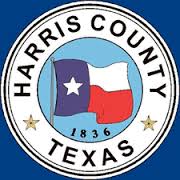That’s my main takeaway from this.
Harris County paid one private attorney just over $1 million last year to represent hundreds of low-income people accused of crimes, helping proliferate a system that critics say wastes taxpayer dollars and robs indigent defendants of a fair shake in court.
Jeanie Ortiz, a former Harris County prosecutor, reported to the state that she earned the $1 million while working on about 400 felonies and 200 misdemeanors. A study funded by the Texas Indigent Defense Commission in 2015 concluded that attorneys could only reasonably handle at most 128 felonies or 226 misdemeanors a year.
“That’s too many cases for one lawyer to handle,” Harris County chief public defender Alex Bunin said of Ortiz’s caseload.
[…]
Sixty years after the U.S. Supreme Court case Gideon v. Wainwright enshrined a person’s right to a lawyer in criminal proceedings, data shows that few indigent clients in the country actually get a good one.
A lack of funding is one big factor, but money isn’t the only reason. Texas’ constitution gives judges the ultimate authority to assign indigent defendants an attorney, and to decide how much that attorney gets paid. That system has led to persistent allegations of favoritism at the expense of defendants.
In Harris County, judges for decades doled out the vast majority of court appointments to a select few. Since attorneys earned a flat fee per case, the only way to make a living representing indigent clients was to take massive numbers of appointments. To get those appointments, attorneys gained favor with the judges by doing everything from contributing to their campaigns to bringing tacos for courtroom staff.
“It was the good ol’ boys system, 100 percent,” [Jed Silverman, president of the Harris County Criminal Defense Lawyers’ Association,] said.
The county eventually began paying court-appointed attorneys hourly. It also opened a public defender’s office in 2010, though many judges refused to use it, instead continuing to appoint overloaded private attorneys. The office has since expanded dramatically, but it still takes the minority of criminal cases in Harris County.
“The issue is, I need money to grow,” Bunin said. And more money will be hard to come by after the county adopted a lower-than-planned tax rate last year following a bitter political fight.
I’ll get to the money issue in a minute. The question about caseloads is one where there’s room for disagreement – Silverman, the HCCDLA President mentioned above, mounted a defense of the attorneys named in this story – though those at the extreme end always look dodgy. Harris County has a new system called “managed assigned counsel” (MAC) that helps a little with keeping anyone from having too many cases, but outside of the occasional news coverage and the State Bar, a process that’s completely opaque to most of us, there’s little oversight of the system as a whole. And that matters because whenever there’s large amounts of money at stake, the potential for ethical issues arises. Look at these three posts from the archives on this topic, and note that even though they span a decade, the same names kept coming up, with certain attorneys being closely connected to certain judges and – not at all coincidentally – their campaign coffers.
This is exactly the sort of thing that a public defender can mitigate. It’s also why there was such fierce opposition to the creation of such an office in Harris County even though most other large counties in Texas had them. Given the extremely cozy relationship between sleazeballs like Gary Polland and his machine for endorsing and financially supporting Republican judges, that was no surprise. But we have a public defender now, and yet we still have judges who make a whole lot of appointments to the same handful of attorneys. The names have changed but the practices have not, or at least not enough. I’m sure lots of new judges think they can do a better job of managing that, but history is against them. It would be better if they didn’t feel the need to try, as there’s a perfectly good alternative already in place.
Which comes back to the budget question. The past obstruction on Commissioners Court to implementing reforms like this has been eliminated thanks to the 2022 election. I am optimistic that the Commissioners will have the desire and the space to add to the public defender budget. Given how much cheaper one public defender is than these court-appointed attorneys, it just makes sense. The PDO doesn’t have to handle every indigent case – I’m sure there will the need for specialized services going forward. But we can and should spend less on those individual appointments, and get more for those dollars via the PDO. Let’s make this happen.

